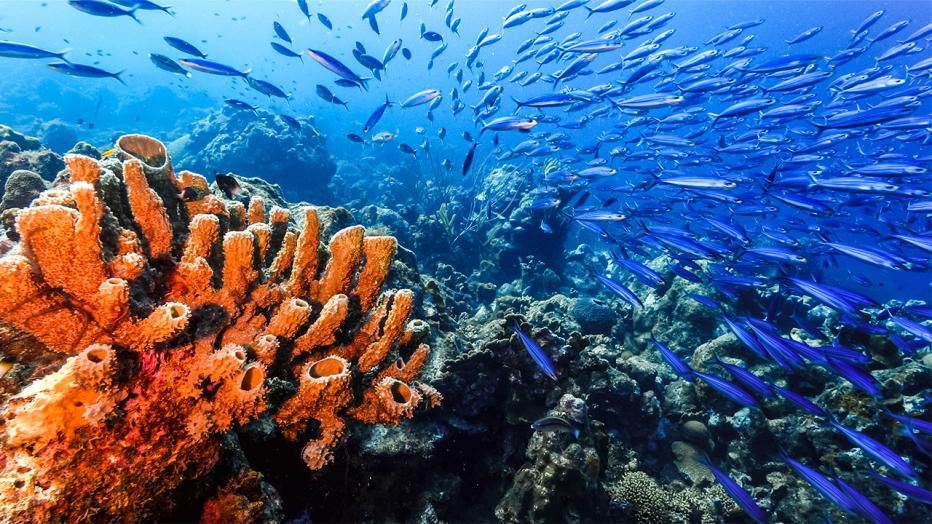
Oceans have been referred to as the lifeblood of planet Earth and humankind. They cover 70% of the earth’s surface and hold 97% of the planet's water. Our oceans transport heat from the equator to the poles, regulating our climate and weather patterns. They produce over half of the world’s oxygen and store 50 times more carbon dioxide than our atmosphere. And from an economic perspective, the value of the global ocean-based economy is estimated between USD 3-6 trillion per year, with more than 3 billion people relying on the oceans for their livelihoods.
Every year, World Oceans Day provides a unique opportunity to honor, help protect and conserve our world’s shared ocean. What if we showed you how Jacobs, an industry leader in environmental stewardship, climate change, sustainability and resilience, is doing its part to protect our ocean resources and coastal communities?
NOAA Ocean and Fisheries
Jacobs’ contract with teaming prime Consolidated Safety Services provides coastal restoration and fisheries management services to the National Oceanic and Atmospheric Administration.
Aiming to address evolving economic, environmental and social pressures on our ocean and coasts, we’re supporting the National Ocean Service (NOS) in three main areas:
- Coastal resilience. From oil spills and vessel groundings to hurricanes and marine debris, NOS provides world-class science and services in support of resilient and healthy coastal communities, economies and ecosystems – a national priority. These services support and inform improved decision making and end-to-end coastal preparedness, response and recovery.
- Coastal intelligence. Whether it is the nation's nautical charts, environmental monitoring and assessment or socioeconomic tools, NOS is committed to integrating science and services to provide actionable information with the goal of increasing ocean and coastal intelligence and improving the ability of public and private decision makers to make informed choices.
- Place-based conservation. Conserving coastal places provides economic benefits to local communities that rely on dollars spent on activities such as recreation and tourism. NOS services focus on conserving marine areas and preserving the economic benefits of these special places to local communities through its coastal management and place-based conservation programs including coastal zone management, the Coastal and Estuarine Land Conservation Program, the National Estuarine Research Reserve System, National Marine Sanctuaries and the Coral Reef Conservation Program.
Our support to the National Marine Fisheries Service includes data gathering using cost-effective applications of next-generation technologies that provide near real-time, high-quality data to inform management and help maintain productive and sustainable fisheries, safe sources of seafood, the recovery and conservation of protected resources and healthy ecosystems.
Coastal Resiliency and Habitat Restoration
Coastal communities face many challenges from flooding, saltwater intrusion, storm-water pollutants and erosion. Jacobs has helped nations, cities and communities around the world mitigate the impact of sea level rise, protect against shoreline erosion, reduce flood risk and restore natural habitats.
In Kiribati, an island republic in the Central Pacific – one of the world’s most economically and physically vulnerable countries, consisting of 33 low lying coral atolls across 3.5 million square kilometers of ocean – we assessed the feasibility of reclaiming 300 hectares of swampy inhabitable land and transforming it to an urban development for up to 35,000 people, resilient to predicted 2200 ocean levels.
On the eastern coast of Central America, we worked with the Inter-American Development Bank and the Government of Belize on a Shoreline Management Plan, using satellite imagery, big data and drones to address coastal resilience and protect the country’s tourism economy.
In Gulf St Vincent, South Australia, we worked with The Nature Conservancy on the construction of a 20-hectare oyster reef expansion, bringing economic and social benefits to the nearby Yorke Peninsula communities through the creation of new jobs and increased opportunities for marine industries.
In the aftermath of the Superstorm Sandy devastation on the Eastern Seaboard of the U.S., we helped the Rockaway Beach community rebuild their historic boardwalk which serves as the pedestrian main street, a waterfront amenity and a major recreational destination where residents from all the different communities along the shore mix and mingle.
World Oceans Day is celebrated on June 8 and includes special events at aquariums and zoos, outdoor explorations, aquatic and beach cleanups, educational and conservation action programs.
Interested in learning more about how Jacobs transforms intangible ideas into intelligent solutions for a more connected, sustainable world? Visit www.jacobs.com/what-if












































